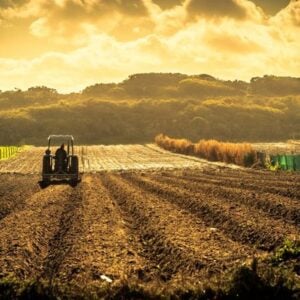Agriculture remains a cornerstone of Nigeria’s economy, employing over a third of the population, but unpredictable weather and climate change make farming a challenging and uncertain livelihood. To address these challenges, the Transforming Irrigation Management in Nigeria (TRIMING) project has expanded and modernized irrigation across 43,400 hectares, enabling farmers to produce enough food to feed approximately one million people. The project equips farmers with tools and knowledge to grow more crops using less land and water, helping Nigeria prepare for a projected 50% increase in global food demand by 2050.
For farmers like Mustapha Adamu in Kano State, northern Nigeria, the transformation has been remarkable. Ten years ago, farming his 6,000-hectare land was difficult due to poor water access, depleted soil, and unpredictable weather. Today, with support from TRIMING, Mustapha leads a Water Users’ Association that manages irrigation, boosts productivity, and ensures efficient use of resources. Similar improvements have been seen across other major schemes, including Hadejia Valley, Bakolori, and Dadin Kowa, where rehabilitated irrigation systems and farmer training have enabled more intensive and productive agriculture.
The project, led by Nigeria’s Federal Ministry of Water Resources and Sanitation with financing from the World Bank’s International Development Association (IDA), tackles both climate and economic pressures. With over 70% of Nigeria’s population under 30 and a quarter of GDP tied to agriculture, increasing job opportunities is critical. TRIMING addresses climate risks such as prolonged dry spells, floods, and erratic rainfall, particularly in regions where less than 1% of farmland is irrigated, leaving farmers highly vulnerable.
In addition to expanding irrigated land, TRIMING has strengthened dam safety, improved drainage, reduced sedimentation, and promoted sustainable water management with support from the Global Water Security and Sanitation Partnership (GWSP). These interventions not only enhance productivity but also lay the foundation for more resilient rural livelihoods. Building on these achievements, the Sustainable Power and Irrigation for Nigeria project will scale up the impact, with continued IDA support.
Looking ahead, Nigeria aims to irrigate 500,000 hectares by 2030 to enhance food security, increase production, and improve rural livelihoods. Smallholder farmers like Mustapha and Hajiya Ramatu are already benefiting from higher yields, better incomes, and greater resilience to climate shocks. As irrigation enables more efficient use of land and water, it is a vital tool for meeting rising global food demand, ensuring that Nigeria can sustainably feed its growing population amid changing climate conditions.







